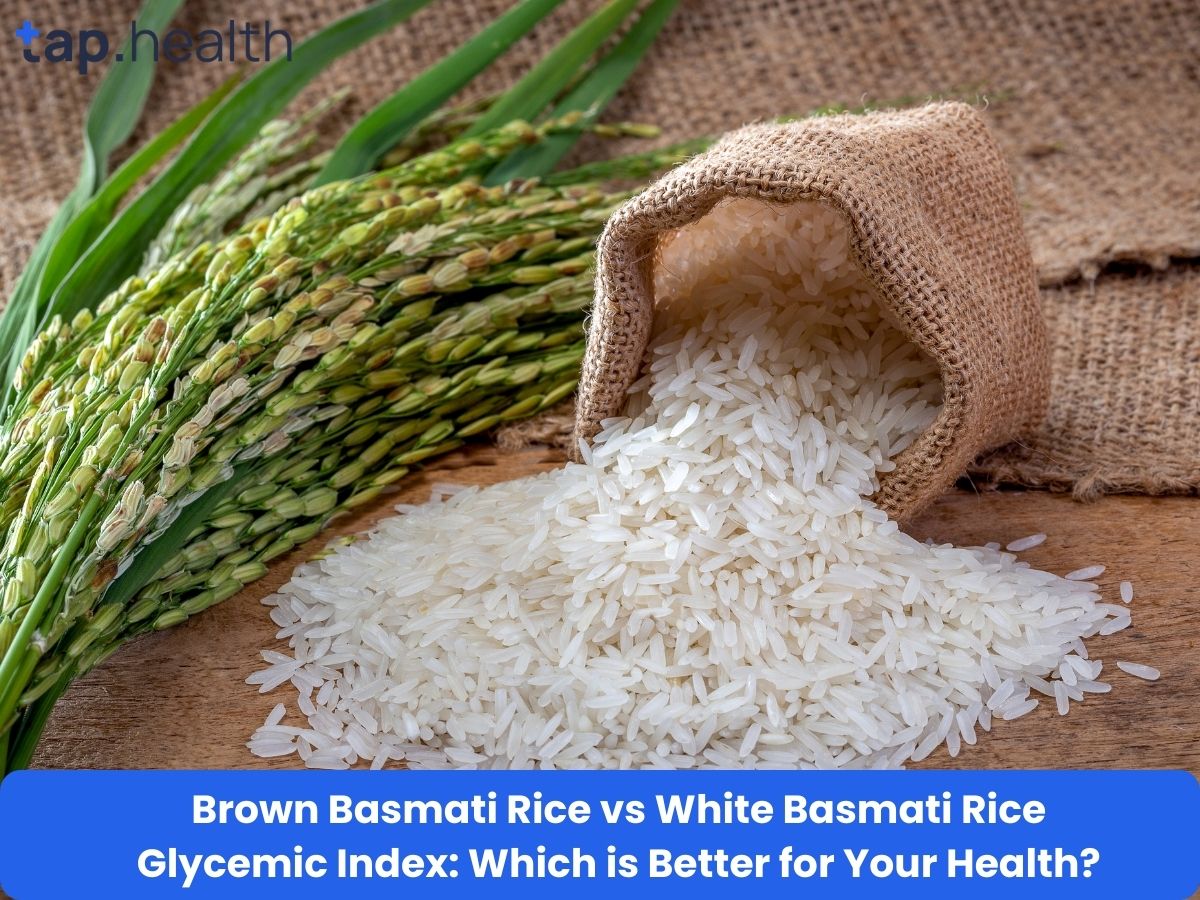Table of Contents
- Sleep Apnea, Diabetes & Vascular Health: A Crucial Link
- How Treating Sleep Apnea Improves Vascular Health in Diabetics
- Protecting Your Heart: The Sleep Apnea-Diabetes Connection
- Guide to Better Vascular Health: Managing Sleep Apnea with Diabetes
- Is Sleep Apnea Harming Your Vascular System? A Diabetes Perspective
- Frequently Asked Questions
- References
Living with diabetes often means navigating a complex web of health concerns, and one often overlooked connection is the link between sleep apnea and vascular health. Improving sleep apnea is crucial, especially if you have diabetes, because untreated sleep apnea can significantly worsen your risk of heart disease and stroke. This blog post will explore the vital connection between Improving Sleep Apnea to Protect Your Vascular Health with Diabetes, providing practical tips and information to help you take control of your health. We’ll uncover how effectively managing sleep apnea can contribute to better blood sugar control and overall cardiovascular well-being. Let’s delve into how you can improve your sleep and safeguard your vascular system.
Sleep Apnea, Diabetes & Vascular Health: A Crucial Link
Sleep apnea, a condition characterized by pauses in breathing during sleep, poses a significant threat to individuals with diabetes. The connection is alarmingly strong: research indicates a 70% increased risk of sleep apnea and related sleep disorders in people with diabetes. This heightened risk underscores the critical link between these two conditions and their shared impact on vascular health. The consequences can be severe, leading to increased complications like heart disease and stroke, particularly prevalent in high-risk populations across India and tropical countries.
Understanding the Interplay
The relationship between diabetes, sleep apnea, and vascular health is complex but interconnected. High blood sugar levels associated with diabetes can contribute to inflammation and damage blood vessels. Similarly, sleep apnea disrupts oxygen levels throughout the night, further stressing the cardiovascular system. This chronic lack of oxygen and intermittent surges in blood pressure, common in sleep apnea, significantly accelerate vascular damage. In tropical climates, already prevalent heat and humidity can exacerbate these issues, demanding a proactive approach to management.
Protecting Your Vascular Health
Managing both diabetes and sleep apnea is crucial for safeguarding vascular health. This involves close collaboration with your doctor to maintain optimal blood sugar levels through diet, medication, and regular exercise. For sleep apnea, treatments like CPAP therapy or oral appliances can significantly improve sleep quality and reduce the strain on the cardiovascular system. In India and other tropical regions, consider incorporating culturally relevant practices, such as incorporating Ayurvedic approaches to sleep hygiene and stress management. Prioritizing regular health check-ups and open communication with your healthcare provider are essential steps to preventing long-term vascular complications. Early detection and proactive management are key to a healthier and longer life. For a deeper understanding of the connection between these two conditions, see our article on The Connection Between Diabetes and Sleep Apnea. Furthermore, The Importance of Quality Sleep in Managing Diabetes highlights the crucial role of sleep in overall diabetes management.
How Treating Sleep Apnea Improves Vascular Health in Diabetics
Sleep apnea, characterized by pauses in breathing during sleep, is a serious condition significantly impacting vascular health, especially in individuals with diabetes. The consequences can be severe, particularly in tropical and Indian climates where pre-existing health conditions are often exacerbated by heat and humidity. Research shows that smokers with diabetes face double the mortality rate due to cardiovascular issues, highlighting the critical need for proactive health management. This underscores the importance of addressing sleep apnea as a vital component of overall vascular health. Understanding the connection between sleep and diabetes is crucial; you might find our article on Does Sugar Diabetes Make You Sleepy? – Tap Health helpful.
The Connection Between Sleep Apnea, Diabetes, and Vascular Health
Untreated sleep apnea leads to chronic low oxygen levels in the blood (hypoxia) and increased inflammation throughout the body. These factors contribute significantly to the development and progression of cardiovascular diseases, which are already a major concern for people with diabetes. The constant stress on the cardiovascular system from sleep apnea exacerbates existing diabetic complications, potentially leading to increased risk of heart attacks, strokes, and other life-threatening events. Managing sleep apnea becomes crucial in mitigating these risks. The post-meal sleepiness experienced by some diabetics, as discussed in Why Do Diabetics Get Sleepy After Eating?, might be linked to blood sugar fluctuations, but it’s vital to rule out underlying conditions like sleep apnea.
Improving Vascular Health: Actionable Steps
Fortunately, effective treatments for sleep apnea are available. Continuous Positive Airway Pressure (CPAP) therapy is a common and effective treatment, delivering a steady stream of air to keep the airways open during sleep. Lifestyle changes, such as weight loss (especially crucial in individuals with diabetes), avoiding alcohol and smoking, and adopting regular exercise, can also significantly improve sleep apnea symptoms and overall vascular health. Regular check-ups with your doctor are essential to monitor your condition and ensure that your treatment plan is effective.
Prioritize Your Health: A Call to Action
In India and other tropical countries, the prevalence of diabetes and related complications is high. Taking proactive steps to manage sleep apnea is paramount for protecting your vascular health. Consult a healthcare professional today to discuss potential sleep apnea diagnosis and treatment options. Early intervention can significantly improve your quality of life and reduce your risk of serious cardiovascular complications. Don’t delay your health; prioritize your well-being.
Protecting Your Heart: The Sleep Apnea-Diabetes Connection
Diabetes and sleep apnea share a concerning link, significantly increasing your risk of cardiovascular complications, particularly in regions like India and other tropical countries. This is because sleep apnea, characterized by pauses in breathing during sleep, elevates blood pressure and puts stress on the heart. For individuals with diabetes, this added strain can exacerbate existing vascular problems. The combination is a potent risk factor for heart disease and stroke.
Understanding the Risks
The impact is amplified by the high prevalence of diabetes in many parts of India and Southeast Asia. This increased susceptibility to cardiovascular issues is further heightened by lifestyle factors common in these regions, such as a diet high in refined carbohydrates and a lack of regular physical activity. Moreover, nearly 30% of people with diabetes develop diabetic nephropathy (kidney disease), adding another layer of cardiovascular risk. This kidney damage further increases blood pressure and strains the heart, making the management of sleep apnea even more critical. The link between Understanding the Link Between Diabetes and Obesity is also a crucial factor to consider.
Taking Control
Addressing sleep apnea is crucial for protecting your vascular health if you have diabetes. Simple lifestyle changes can make a significant difference. Prioritizing regular exercise, adopting a balanced diet low in processed foods and refined sugars, and maintaining a healthy weight are essential first steps. If you suspect you have sleep apnea, consult a doctor for diagnosis and treatment options like CPAP therapy. Early intervention is key to mitigating the long-term risks associated with this dangerous combination. In India and other tropical countries, proactive healthcare is especially vital due to the higher prevalence of these conditions. For more information on protecting your heart, see our guide on Protect Your Heart from Diabetes: 5 Essential Steps. Don’t delay – take charge of your health today.
Guide to Better Vascular Health: Managing Sleep Apnea with Diabetes
Diabetes significantly increases the risk of vascular complications, and for many, this risk is compounded by sleep apnea. Sleep apnea, characterized by pauses in breathing during sleep, is alarmingly prevalent, especially among those with diabetes. Considering that 61% of people with diabetes in the world are aged between 20-64 years, a significant portion of the working-age population is vulnerable. This age group is particularly active, making effective management of both conditions crucial.
Understanding the Link Between Sleep Apnea, Diabetes, and Vascular Health
Sleep apnea disrupts oxygen levels throughout the night, leading to increased blood pressure and inflammation. These factors, already exacerbated by diabetes, severely strain the cardiovascular system. The resulting damage can manifest as heart disease, stroke, and peripheral artery disease – all major vascular health concerns. In hot and humid climates prevalent in many Indian and tropical countries, the added stress on the body from heat can further worsen these complications.
Practical Steps for Better Management
Managing sleep apnea effectively improves vascular health outcomes for individuals with diabetes. Lifestyle changes are paramount: weight loss (if needed), regular exercise, and avoiding alcohol and sleeping pills are crucial. Dietary changes focusing on fresh produce and whole grains are also beneficial. Consult your doctor about Continuous Positive Airway Pressure (CPAP) therapy, a common treatment for sleep apnea. Early diagnosis and proactive management are key to preventing serious vascular complications. For those who travel frequently, it’s also important to consider the added challenges, as outlined in our guide on Traveling with Diabetes: Essential Tips for a Safe & Healthy Journey.
Taking Control of Your Health in Tropical Climates
In hot and humid climates, prioritizing sleep hygiene is even more important. Ensure proper ventilation and a cool sleeping environment. Stay hydrated throughout the day, and consult a healthcare professional for personalized advice tailored to your regional conditions. Remember, proactive management of both diabetes and sleep apnea is essential for a healthier and longer life. Seek regular check-ups and don’t hesitate to discuss your concerns with your doctor. Maintaining good vascular health is crucial, and protecting your vision is a key part of this. Learn more about protecting your sight in our article on How to Protect Your Vision with Diabetes: Essential Eye Care Tips.
Is Sleep Apnea Harming Your Vascular System? A Diabetes Perspective
Sleep apnea, characterized by pauses in breathing during sleep, is a serious concern, especially for individuals with diabetes. In India, and across many tropical countries, the prevalence of diabetes and its associated complications, such as hypertension, is alarmingly high. Over 60% of people with diabetes in India also have hypertension, according to the International Diabetes Federation (IDF). This startling statistic highlights the urgent need to address sleep apnea’s impact on vascular health within this vulnerable population.
The Connection Between Sleep Apnea, Diabetes, and Vascular Health
The link between sleep apnea and vascular damage is multifaceted. Repeated oxygen drops during apneic episodes cause oxidative stress and inflammation, damaging blood vessels. This is further exacerbated in individuals with diabetes, who already experience impaired vascular function due to high blood sugar levels. The combined effect significantly increases the risk of cardiovascular complications like heart attacks and strokes. Furthermore, sleep apnea often leads to increased blood pressure, a major risk factor for hypertension—a prevalent comorbidity with diabetes in India. Understanding how diabetes affects blood flow is crucial in this context. For more information, read our article on How Does Diabetes Affect Blood Flow?
Protecting Your Vascular Health: Actionable Steps
Managing sleep apnea is crucial for protecting your vascular health, particularly if you have diabetes. Consulting a physician for diagnosis and treatment options is paramount. Lifestyle modifications, such as weight loss, avoiding alcohol and sedatives before bed, and adopting regular exercise, can significantly improve sleep quality and reduce the severity of sleep apnea. Prioritizing consistent blood sugar control is also vital, as it directly impacts vascular health. In India and other tropical regions, access to healthcare may vary, so seeking advice from local healthcare professionals is critical for personalized management. Taking proactive steps to manage sleep apnea is an investment in a healthier and longer life. One symptom to watch out for is excessive sleepiness after meals. If you experience this, learn more about its potential connection to diabetes by reading our blog: Is Feeling Sleepy After Eating a Sign of Diabetes?
Frequently Asked Questions on Improving Sleep Apnea to Protect Your Vascular Health with Diabetes
Q1. What is the link between sleep apnea, diabetes, and cardiovascular health?
Sleep apnea and diabetes significantly increase the risk of cardiovascular problems. High blood sugar levels from diabetes cause inflammation in blood vessels, while sleep apnea reduces oxygen levels and increases blood pressure, further damaging blood vessels. This combination accelerates heart disease and stroke.
Q2. How can I manage sleep apnea if I have diabetes?
Managing both conditions is vital. Treatments for sleep apnea include CPAP therapy and lifestyle changes like weight loss, regular exercise, and avoiding alcohol and smoking. Regular check-ups and close communication with your doctor are also essential.
Q3. Why is managing sleep apnea especially important for diabetics in tropical climates like India?
While the risk is high for all diabetics with sleep apnea, those in tropical climates like India may face amplified risks due to factors that could exacerbate the existing conditions. Further research is needed to fully understand this connection.
Q4. What are the potential long-term consequences of untreated sleep apnea for diabetics?
Untreated sleep apnea in diabetics can significantly accelerate the development of heart disease and stroke, leading to severe cardiovascular events and reduced life expectancy. Early diagnosis and proactive management are crucial for mitigating these risks.
Q5. What is the first step I should take if I suspect I have sleep apnea and diabetes?
Schedule an appointment with your doctor immediately. They can conduct assessments to diagnose both conditions and recommend appropriate treatment plans, including lifestyle modifications and medical therapies.
References
- A Practical Guide to Integrated Type 2 Diabetes Care: https://www.hse.ie/eng/services/list/2/primarycare/east-coast-diabetes-service/management-of-type-2-diabetes/diabetes-and-pregnancy/icgp-guide-to-integrated-type-2.pdf
- A Novel Adaptive Hybrid Focal-Entropy Loss for Enhancing Diabetic Retinopathy Detection Using Convolutional Neural Networks: https://arxiv.org/pdf/2411.10843



